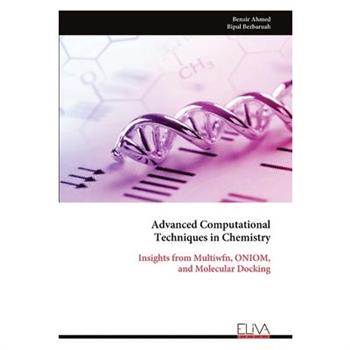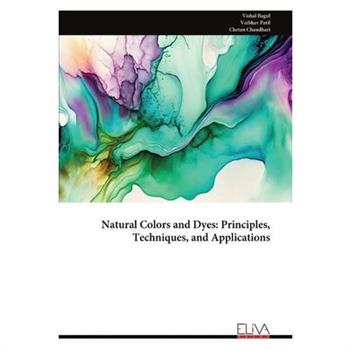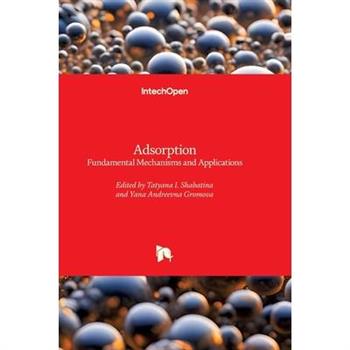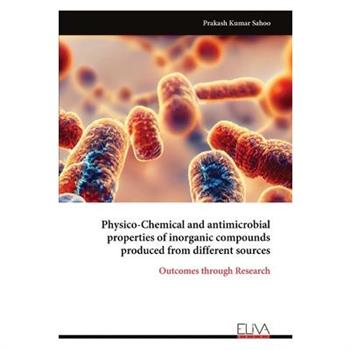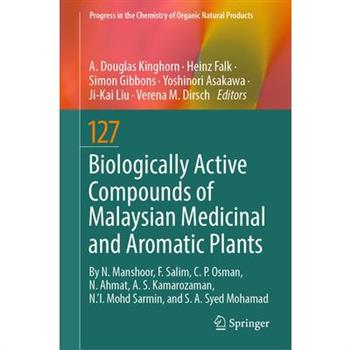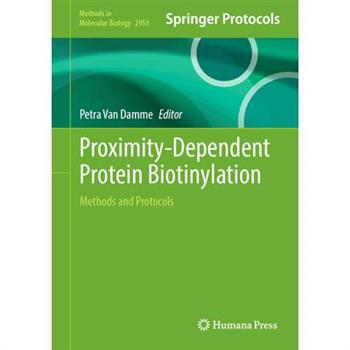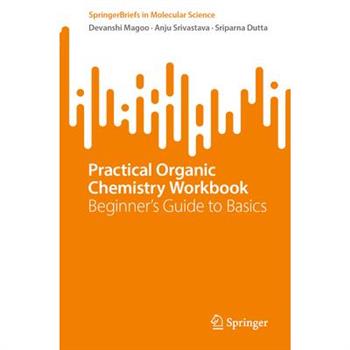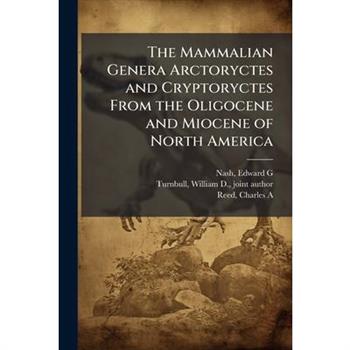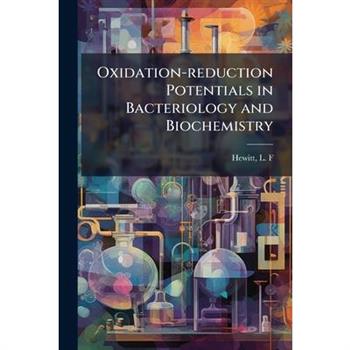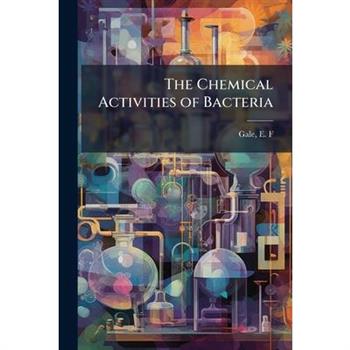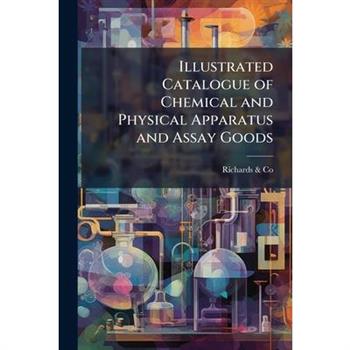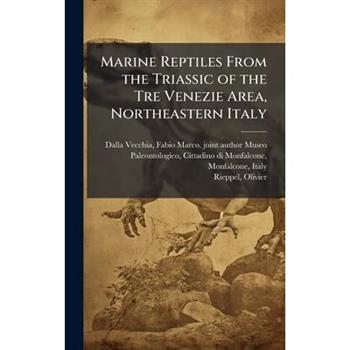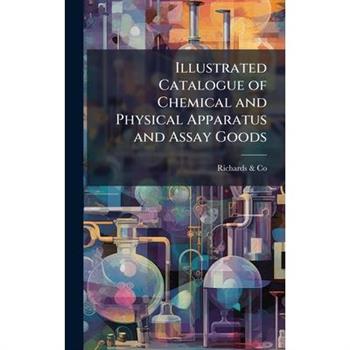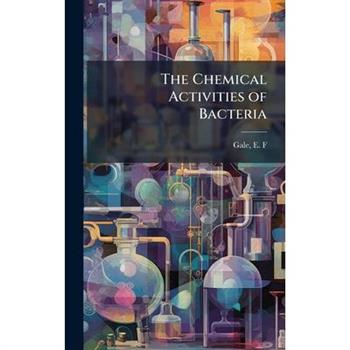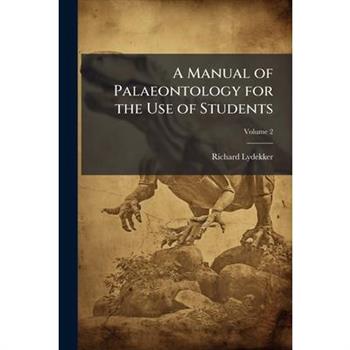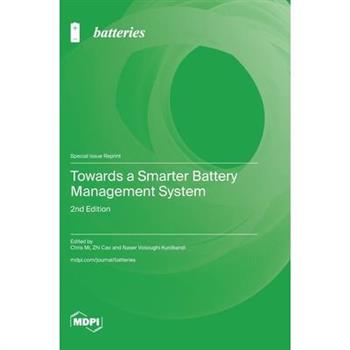Advanced Computational Techniques in Chemistry
This book offers a comprehensive analysis of advanced computational methodologies viz. Multiwfn, ONIOM and Molecular Docking, which have become an essential tool in modern theoretical chemistry research. Multiwfn, an advanced wavefunction analysis software packages enhance the understanding of electronic structures by providing detailed quantitative and visual analysis of molecular orbitals, electron density distributions, and intermolecular interactions. This tool excels in performing various real-space function calculations, such as electron localization and electrostatic potential mapping, which are crucial for studying complex quantum interactions and analysing molecular behaviour across different chemical environments. A hybrid QM/MM framework i.e., ONIOM method enables the efficient analysis of complex molecular systems by dividing them into different layers of atoms. This multiscale modeling approach optimizes computational resources by applying high-level QM calculations to the bio-active regions while relying on more cost-effective MM for the remaining sites. ONIOM is particularly valuable in predicting chemical reactivity, catalysis, and biological interactions with great accuracy. Molecular docking, a key technique in structure-based drug design, precisely predicts ligand-receptor interactions and aids in the discovery and optimization of lead compounds. The molecular docking simulation holds promise for a deeper understanding of ligand-protein binding mechanism; while challenges remain in addressing their protein flexibility for accurately predicting binding affinities. The synergy among Multiwfn's wavefunction analysis, ONIOM's multiscale modeling and molecular docking's role in drug discovery creates a robust framework for studying molecular interactions. This book highlights their collective contribution in biomolecular interactions and material science, expanding the horizons of applied computational chemistry to address the complex challenges in chemical and biological systems, and their potential for driving future innovations.
Arsenic In Papers And Fabrics
"Arsenic In Papers And Fabrics" delves into the historical use of arsenic in the manufacturing of paper and textiles. This meticulously researched work explores the processes by which arsenic compounds were incorporated into these materials, the reasons behind their use, and the consequential health hazards they posed. Authored by John Kerfoot Haywood and Harry Jackson Warner, this book provides a detailed account of the chemical properties of arsenic, its application in industrial settings, and its presence in everyday items. The authors shed light on the public health concerns that arose from arsenic exposure, examining the symptoms of arsenic poisoning and the measures taken to mitigate its risks. This book is essential for historians of science and technology, toxicologists, public health professionals, and anyone interested in the intersection of industrial practices and environmental health. It serves as a valuable historical record, documenting a critical period in industrial history and its implications for human health.This work has been selected by scholars as being culturally important, and is part of the knowledge base of civilization as we know it. This work was reproduced from the original artifact, and remains as true to the original work as possible. Therefore, you will see the original copyright references, library stamps (as most of these works have been housed in our most important libraries around the world), and other notations in the work.This work is in the public domain in the United States of America, and possibly other nations. Within the United States, you may freely copy and distribute this work, as no entity (individual or corporate) has a copyright on the body of the work.As a reproduction of a historical artifact, this work may contain missing or blurred pages, poor pictures, errant marks, etc. Scholars believe, and we concur, that this work is important enough to be preserved, reproduced, and made generally available to the public. We appreciate your support of the preservation process, and thank you for being an important part of keeping this knowledge alive and relevant.
Natural Colors and Dyes
Natural Colors and Dyes: Sustainable Sources and Applications explores the vibrant world of plant-based, mineral, and animal-derived pigments, offering a comprehensive overview of the extraction, properties, and applications of natural dyes in various industries. As environmental concerns drive the shift away from synthetic dyes, this textbook provides crucial insights into eco-friendly alternatives that are not only safe but also biodegradable and renewable. The book delves into the historical significance of natural colors, from their use in ancient civilizations to their resurgence in modern sustainable practices. It covers the chemistry of natural pigments, the extraction methods from diverse sources, and their stability in different conditions, making it a key resource for students, researchers, and industry professionals working in textiles, cosmetics, food, pharmaceuticals, and art conservation. Natural Colors and Dyes also highlights the challenges and future trends in the adoption of natural dyes, addressing topics such as scalability, cost-efficiency, and regulatory standards. By combining scientific principles with practical applications, this textbook equips readers with the knowledge to contribute to the growing field of sustainable coloration technologies and supports the global movement toward more environmentally responsible practices.
Adsorption - Fundamental Mechanisms and Applications
The book Adsorption - Fundamental Mechanisms and Applications presents recent efforts of different research groups in synthesising and investigating the properties of the obtained adsorbent systems. The main physicochemical principles governing the fundamental process of adsorption, which underlies many theoretical and practical phenomena in modern science and technology, are thoroughly discussed. The book covers the following theoretical aspects, including adsorption isotherms, adsorption mechanisms, and the kinetics and thermodynamics of adsorption processes under various conditions. The book's chapters combine the description of theoretical foundations with novel applications in catalysis, environmental protection, and biomedicine. Focusing on both classical models and state-of-the-art materials, this book serves as a valuable resource for undergraduate and graduate students, researchers, and professionals seeking a comprehensive understanding of adsorption phenomena and their applications in various fields.
Physico-Chemical and antimicrobial properties of inorganic compounds produced from different sources
Inorganic compounds, derived from various natural and synthetic sources, exhibit diverse physicochemical and antimicrobial properties, making them crucial in numerous applications across industries. These compounds are often characterized by their stability, solubility, and thermal resistance, factors that directly influence their antimicrobial efficacy. Metal oxides, sulfates, and halides are prominent examples, with elements like Gold, silver, copper, and zinc demonstrating significant antimicrobial properties. The ability of these compounds to disrupt microbial cell walls or generate reactive oxygen species makes them effective against a wide range of pathogens, including bacteria, fungi, and viruses. Understanding the relationship between their structure, source, and antimicrobial activity helps in tailoring these compounds for use in healthcare, agriculture, and environmental sanitation.
Practical Chemistry
"Practical Chemistry: The Principles of Qualitative Analysis" by Sir William Augustus Tilden offers a comprehensive exploration of fundamental chemical concepts and analytical techniques. This book delves into the core principles of qualitative analysis, providing readers with a structured approach to understanding chemical reactions and identifying substances. Designed for both students and practitioners, this work combines theoretical knowledge with practical applications, featuring experiments and projects that illustrate key concepts. Discover the timeless principles that govern chemical interactions and learn the methodologies used to unravel the composition of various substances.This work has been selected by scholars as being culturally important, and is part of the knowledge base of civilization as we know it. This work was reproduced from the original artifact, and remains as true to the original work as possible. Therefore, you will see the original copyright references, library stamps (as most of these works have been housed in our most important libraries around the world), and other notations in the work.This work is in the public domain in the United States of America, and possibly other nations. Within the United States, you may freely copy and distribute this work, as no entity (individual or corporate) has a copyright on the body of the work.As a reproduction of a historical artifact, this work may contain missing or blurred pages, poor pictures, errant marks, etc. Scholars believe, and we concur, that this work is important enough to be preserved, reproduced, and made generally available to the public. We appreciate your support of the preservation process, and thank you for being an important part of keeping this knowledge alive and relevant.
Biologically Active Compounds of Malaysian Medicinal and Aromatic Plants
This volume explores the biologically active compounds found in 21 high-value medicinal and aromatic plant species native to Malaysia, emphasizing their phytochemical diversity and biological activities. Several of these plants, including Eurycoma longifolia, Andrographis paniculata, Morinda citrifolia, Centella asiatica, and Moringa pleifera, have been prioritized as high-priority herbal products under Malaysia's National Key Economic Area in the Eleventh Malaysia Plan. Their importance transcends traditional herbal medicine, as they are increasingly recognized for their potential contributions to the national economy and modern healthcare. The volume describes the pharmacological properties of these plants, highlighting their anti-inflammatory, antioxidant, antimicrobial, and cytotoxic activities. It also encompasses aromatic plants like Clinacanthus nutans, Cananga odorata, Citrus hystrix, and Polygonum minus, focusing on their bioactive compounds and potential therapeutic and industrial uses.
Magnetic Susceptibility Of A Group Of Esters
"Magnetic Susceptibility Of A Group Of Esters" presents a detailed investigation into the magnetic properties of various ester compounds. This study provides valuable insights into the relationship between molecular structure and magnetic behavior, contributing to a deeper understanding of magnetochemistry and physical chemistry. Exploring the magnetic characteristics of esters, this work enhances our knowledge of how these ubiquitous chemical compounds interact with magnetic fields. It will be of interest to researchers and students in chemistry, physics, and materials science.This work has been selected by scholars as being culturally important, and is part of the knowledge base of civilization as we know it. This work was reproduced from the original artifact, and remains as true to the original work as possible. Therefore, you will see the original copyright references, library stamps (as most of these works have been housed in our most important libraries around the world), and other notations in the work.This work is in the public domain in the United States of America, and possibly other nations. Within the United States, you may freely copy and distribute this work, as no entity (individual or corporate) has a copyright on the body of the work.As a reproduction of a historical artifact, this work may contain missing or blurred pages, poor pictures, errant marks, etc. Scholars believe, and we concur, that this work is important enough to be preserved, reproduced, and made generally available to the public. We appreciate your support of the preservation process, and thank you for being an important part of keeping this knowledge alive and relevant.
Outlines Of Elementary Metallurgy And Qualitative Analysis
"Outlines Of Elementary Metallurgy And Qualitative Analysis" is a meticulously crafted laboratory manual designed for students in the Department of Chemistry at Northwestern University Dental School. Authored by Vernon James Hall, this manual serves as an invaluable resource for students embarking on the study of metallurgy and qualitative analysis. The book provides a structured approach to conducting experiments and understanding fundamental concepts. With clear instructions and comprehensive outlines, students can confidently navigate the complexities of chemical processes and metallurgical techniques. This manual equips students with the knowledge and practical skills necessary for success in their studies and future careers. Its enduring relevance makes it a worthwhile addition to any scientific collection.This work has been selected by scholars as being culturally important, and is part of the knowledge base of civilization as we know it. This work was reproduced from the original artifact, and remains as true to the original work as possible. Therefore, you will see the original copyright references, library stamps (as most of these works have been housed in our most important libraries around the world), and other notations in the work.This work is in the public domain in the United States of America, and possibly other nations. Within the United States, you may freely copy and distribute this work, as no entity (individual or corporate) has a copyright on the body of the work.As a reproduction of a historical artifact, this work may contain missing or blurred pages, poor pictures, errant marks, etc. Scholars believe, and we concur, that this work is important enough to be preserved, reproduced, and made generally available to the public. We appreciate your support of the preservation process, and thank you for being an important part of keeping this knowledge alive and relevant.
Magnetic Susceptibility Of A Group Of Esters
"Magnetic Susceptibility Of A Group Of Esters" presents a detailed investigation into the magnetic properties of various ester compounds. This study provides valuable insights into the relationship between molecular structure and magnetic behavior, contributing to a deeper understanding of magnetochemistry and physical chemistry. Exploring the magnetic characteristics of esters, this work enhances our knowledge of how these ubiquitous chemical compounds interact with magnetic fields. It will be of interest to researchers and students in chemistry, physics, and materials science.This work has been selected by scholars as being culturally important, and is part of the knowledge base of civilization as we know it. This work was reproduced from the original artifact, and remains as true to the original work as possible. Therefore, you will see the original copyright references, library stamps (as most of these works have been housed in our most important libraries around the world), and other notations in the work.This work is in the public domain in the United States of America, and possibly other nations. Within the United States, you may freely copy and distribute this work, as no entity (individual or corporate) has a copyright on the body of the work.As a reproduction of a historical artifact, this work may contain missing or blurred pages, poor pictures, errant marks, etc. Scholars believe, and we concur, that this work is important enough to be preserved, reproduced, and made generally available to the public. We appreciate your support of the preservation process, and thank you for being an important part of keeping this knowledge alive and relevant.
Prob Instrum Analy Chem (2nd Ed)
The complex field of analytical chemistry requires knowledge and application of the fundamental principles of numerical calculation. Problems of Instrumental Analytical Chemistry provides support and guidance to help students develop these numerical strategies to generate information from experimental results in an efficient and reliable way. The book contains exercises that provide standard protocols for the most common calculations in the daily work of a laboratory. Also included are easy-to-follow diagrams to facilitate understanding and avoid common errors, making this textbook perfect as a hands-on accompaniment to in-class learning.The subjects covered follow a course in analytical chemistry from the initial basics of data analysis to applications of mass, UV-VIS, infrared and atomic spectrometry and chromatography, concluding with an overview of nuclear magnetic resonance and electrochemistry. Intended as a self-training tool for undergraduates in chemistry, analytical chemistry and related subjects, this book is also useful as a reference for scientists looking to brush up on their knowledge of instrumental techniques in laboratories.This second edition builds upon the first with new and updated content, as well as QR codes distributed throughout, directing readers to dedicated materials and websites hosting additional information, examples and models.
Prob Instrum Analy Chem (2nd Ed)
The complex field of analytical chemistry requires knowledge and application of the fundamental principles of numerical calculation. Problems of Instrumental Analytical Chemistry provides support and guidance to help students develop these numerical strategies to generate information from experimental results in an efficient and reliable way. The book contains exercises that provide standard protocols for the most common calculations in the daily work of a laboratory. Also included are easy-to-follow diagrams to facilitate understanding and avoid common errors, making this textbook perfect as a hands-on accompaniment to in-class learning.The subjects covered follow a course in analytical chemistry from the initial basics of data analysis to applications of mass, UV-VIS, infrared and atomic spectrometry and chromatography, concluding with an overview of nuclear magnetic resonance and electrochemistry. Intended as a self-training tool for undergraduates in chemistry, analytical chemistry and related subjects, this book is also useful as a reference for scientists looking to brush up on their knowledge of instrumental techniques in laboratories.This second edition builds upon the first with new and updated content, as well as QR codes distributed throughout, directing readers to dedicated materials and websites hosting additional information, examples and models.
Handbuch Der Chemie, Volumes 1-3
Explore the foundational principles of chemistry with Leopold Gmelin's comprehensive "Handbuch Der Chemie, Volumes 1-3." This multi-volume work delves into the chemical elements, compounds, and reactions that define the field. A valuable resource for students, researchers, and historians of science, Gmelin's handbook offers detailed insights into the chemical knowledge of the 19th century.Discover the meticulous research and systematic organization that made Gmelin a leading figure in the world of chemistry. This handbook remains a testament to the enduring importance of understanding the building blocks of our world.This work has been selected by scholars as being culturally important, and is part of the knowledge base of civilization as we know it. This work was reproduced from the original artifact, and remains as true to the original work as possible. Therefore, you will see the original copyright references, library stamps (as most of these works have been housed in our most important libraries around the world), and other notations in the work.This work is in the public domain in the United States of America, and possibly other nations. Within the United States, you may freely copy and distribute this work, as no entity (individual or corporate) has a copyright on the body of the work.As a reproduction of a historical artifact, this work may contain missing or blurred pages, poor pictures, errant marks, etc. Scholars believe, and we concur, that this work is important enough to be preserved, reproduced, and made generally available to the public. We appreciate your support of the preservation process, and thank you for being an important part of keeping this knowledge alive and relevant.
The Triassic Reptile, Poposaurus
The Triassic Reptile, Poposaurus, originally published as Fieldiana, Geology, Vol. 14, No. 4 (1960), presents a detailed paleontological study of the Poposaurus. Authored by Edwin H. Colbert, a prominent figure in vertebrate paleontology, this work offers valuable insights into the anatomy, classification, and evolutionary significance of this Triassic reptile.This volume provides a comprehensive analysis based on fossil evidence, making it an essential resource for researchers, students, and enthusiasts interested in the Triassic period, reptilian evolution, and the history of life on Earth. Colbert's meticulous approach and clear writing ensure that this study remains relevant to contemporary paleontological research.This work has been selected by scholars as being culturally important, and is part of the knowledge base of civilization as we know it. This work was reproduced from the original artifact, and remains as true to the original work as possible. Therefore, you will see the original copyright references, library stamps (as most of these works have been housed in our most important libraries around the world), and other notations in the work.This work is in the public domain in the United States of America, and possibly other nations. Within the United States, you may freely copy and distribute this work, as no entity (individual or corporate) has a copyright on the body of the work.As a reproduction of a historical artifact, this work may contain missing or blurred pages, poor pictures, errant marks, etc. Scholars believe, and we concur, that this work is important enough to be preserved, reproduced, and made generally available to the public. We appreciate your support of the preservation process, and thank you for being an important part of keeping this knowledge alive and relevant.
The Mammalian Genera Arctoryctes and Cryptoryctes From the Oligocene and Miocene of North America
The Mammalian Genera Arctoryctes and Cryptoryctes From the Oligocene and Miocene of North America presents a detailed paleontological study focusing on two genera of mammals from the Oligocene and Miocene epochs. Authored by William D. Turnbull and Charles A. Reed, and edited by Edward G. Nash, this volume from Fieldiana, Geology (Vol. 15, No. 2) offers valuable insights into the evolutionary history and characteristics of Arctoryctes and Cryptoryctes. This work is essential for researchers and students in paleontology, zoology, and evolutionary biology, providing comprehensive analysis and descriptions relevant to understanding mammalian evolution in North America during these geological periods. The meticulous research and detailed findings make this publication a significant contribution to the field.This work has been selected by scholars as being culturally important, and is part of the knowledge base of civilization as we know it. This work was reproduced from the original artifact, and remains as true to the original work as possible. Therefore, you will see the original copyright references, library stamps (as most of these works have been housed in our most important libraries around the world), and other notations in the work.This work is in the public domain in the United States of America, and possibly other nations. Within the United States, you may freely copy and distribute this work, as no entity (individual or corporate) has a copyright on the body of the work.As a reproduction of a historical artifact, this work may contain missing or blurred pages, poor pictures, errant marks, etc. Scholars believe, and we concur, that this work is important enough to be preserved, reproduced, and made generally available to the public. We appreciate your support of the preservation process, and thank you for being an important part of keeping this knowledge alive and relevant.
Catalogue of the Fossils in the Students' Stratigraphical Series
"Catalogue of the Fossils in the Students' Stratigraphical Series" is a detailed guide to identifying and classifying fossils found in various geological strata. Compiled by Henry Woods, this catalogue serves as an invaluable resource for students and researchers in paleontology and geology. The book provides a systematic overview of fossils, aiding in their identification and understanding their significance in the study of Earth's history.This catalogue not only helps in the practical aspects of fossil identification but also enhances the comprehension of stratigraphy, the branch of geology concerned with the study of rock layers and their formation. It's a must-have reference for anyone delving into the rich history preserved within the Earth's crust.This work has been selected by scholars as being culturally important, and is part of the knowledge base of civilization as we know it. This work was reproduced from the original artifact, and remains as true to the original work as possible. Therefore, you will see the original copyright references, library stamps (as most of these works have been housed in our most important libraries around the world), and other notations in the work.This work is in the public domain in the United States of America, and possibly other nations. Within the United States, you may freely copy and distribute this work, as no entity (individual or corporate) has a copyright on the body of the work.As a reproduction of a historical artifact, this work may contain missing or blurred pages, poor pictures, errant marks, etc. Scholars believe, and we concur, that this work is important enough to be preserved, reproduced, and made generally available to the public. We appreciate your support of the preservation process, and thank you for being an important part of keeping this knowledge alive and relevant.
The Dielectric Constants of Ternary Mixtures
"The Dielectric Constants of Ternary Mixtures," by Ernest George Ehlman, presents a detailed exploration into the dielectric properties of combined substances. This scientific work from 1907 delves into the methodologies and findings related to measuring and understanding how ternary mixtures behave under electric fields. A valuable resource for researchers and students in physical chemistry and electromagnetism, this book offers insights into early 20th-century experimental techniques and theoretical frameworks concerning material properties. Its enduring appeal lies in its contribution to the foundational understanding of dielectric behavior, making it relevant for historical context and comparative analysis in modern scientific studies.This work has been selected by scholars as being culturally important, and is part of the knowledge base of civilization as we know it. This work was reproduced from the original artifact, and remains as true to the original work as possible. Therefore, you will see the original copyright references, library stamps (as most of these works have been housed in our most important libraries around the world), and other notations in the work.This work is in the public domain in the United States of America, and possibly other nations. Within the United States, you may freely copy and distribute this work, as no entity (individual or corporate) has a copyright on the body of the work.As a reproduction of a historical artifact, this work may contain missing or blurred pages, poor pictures, errant marks, etc. Scholars believe, and we concur, that this work is important enough to be preserved, reproduced, and made generally available to the public. We appreciate your support of the preservation process, and thank you for being an important part of keeping this knowledge alive and relevant.
A Monograph of the Mollusca From the Great Oolite Chiefly From Minchinhampton and the Coast of Yorkshire
"A Monograph of the Mollusca From the Great Oolite Chiefly From Minchinhampton and the Coast of Yorkshire, Pt.2-3 (1853-1854)" is a detailed scientific study of mollusks from the Great Oolite geological formation, primarily focusing on specimens found in Minchinhampton and along the Yorkshire coast. Co-authored by John Lycett and John Morris, this monograph provides an in-depth examination of these fossilized creatures. This historical work is invaluable for researchers, paleontologists, and anyone with an interest in the natural history of the Jurassic period. The detailed descriptions and illustrations offer a glimpse into the ancient marine life that once thrived in these regions, making it an essential resource for understanding the paleontological history of England.This work has been selected by scholars as being culturally important, and is part of the knowledge base of civilization as we know it. This work was reproduced from the original artifact, and remains as true to the original work as possible. Therefore, you will see the original copyright references, library stamps (as most of these works have been housed in our most important libraries around the world), and other notations in the work.This work is in the public domain in the United States of America, and possibly other nations. Within the United States, you may freely copy and distribute this work, as no entity (individual or corporate) has a copyright on the body of the work.As a reproduction of a historical artifact, this work may contain missing or blurred pages, poor pictures, errant marks, etc. Scholars believe, and we concur, that this work is important enough to be preserved, reproduced, and made generally available to the public. We appreciate your support of the preservation process, and thank you for being an important part of keeping this knowledge alive and relevant.
The Application of an Explicit Numerical Method to a Reaction-diffusion System in Combustion
"The Application of an Explicit Numerical Method to a Reaction-diffusion System in Combustion" explores the utilization of explicit numerical techniques to model and analyze reaction-diffusion processes within combustion systems. This study, conducted by Rolf D. Reitz, delves into the complexities of simulating combustion phenomena through numerical methods, providing insights into the behavior and characteristics of these systems. The work is relevant to researchers and engineers in chemical engineering, combustion science, and applied mathematics, offering a valuable contribution to the field of computational modeling of reactive processes.This work has been selected by scholars as being culturally important, and is part of the knowledge base of civilization as we know it. This work was reproduced from the original artifact, and remains as true to the original work as possible. Therefore, you will see the original copyright references, library stamps (as most of these works have been housed in our most important libraries around the world), and other notations in the work.This work is in the public domain in the United States of America, and possibly other nations. Within the United States, you may freely copy and distribute this work, as no entity (individual or corporate) has a copyright on the body of the work.As a reproduction of a historical artifact, this work may contain missing or blurred pages, poor pictures, errant marks, etc. Scholars believe, and we concur, that this work is important enough to be preserved, reproduced, and made generally available to the public. We appreciate your support of the preservation process, and thank you for being an important part of keeping this knowledge alive and relevant.
Oxidation-reduction Potentials in Bacteriology and Biochemistry
"Oxidation-reduction Potentials in Bacteriology and Biochemistry" explores the fundamental principles governing oxidation-reduction reactions within biological systems. Authored by L. F. Hewitt, this work delves into the electrochemical nature of bacterial and biochemical processes, providing a comprehensive analysis of redox potentials and their significance. It examines the methodologies for measuring and interpreting oxidation-reduction potentials, offering insights into the metabolic pathways and enzymatic reactions crucial to life. This book is an invaluable resource for researchers and students in microbiology, biochemistry, and related fields, presenting a detailed examination of redox phenomena and their impact on biological functions.This work has been selected by scholars as being culturally important, and is part of the knowledge base of civilization as we know it. This work was reproduced from the original artifact, and remains as true to the original work as possible. Therefore, you will see the original copyright references, library stamps (as most of these works have been housed in our most important libraries around the world), and other notations in the work.This work is in the public domain in the United States of America, and possibly other nations. Within the United States, you may freely copy and distribute this work, as no entity (individual or corporate) has a copyright on the body of the work.As a reproduction of a historical artifact, this work may contain missing or blurred pages, poor pictures, errant marks, etc. Scholars believe, and we concur, that this work is important enough to be preserved, reproduced, and made generally available to the public. We appreciate your support of the preservation process, and thank you for being an important part of keeping this knowledge alive and relevant.
The Chemical Activities of Bacteria
The Chemical Activities of Bacteria explores the biochemical processes within bacteria, detailing the enzymatic reactions and metabolic pathways that drive bacterial life. Written by a leading expert in the field, this book provides a comprehensive overview of the chemical changes induced by bacteria and their significance in various biological contexts. It is an invaluable resource for students, researchers, and professionals in microbiology, biochemistry, and related disciplines, offering insights into the fundamental mechanisms underlying bacterial physiology and their applications in biotechnology and medicine. "The Chemical Activities of Bacteria" remains a foundational text for understanding the intricate relationship between bacterial activity and chemical transformations.This work has been selected by scholars as being culturally important, and is part of the knowledge base of civilization as we know it. This work was reproduced from the original artifact, and remains as true to the original work as possible. Therefore, you will see the original copyright references, library stamps (as most of these works have been housed in our most important libraries around the world), and other notations in the work.This work is in the public domain in the United States of America, and possibly other nations. Within the United States, you may freely copy and distribute this work, as no entity (individual or corporate) has a copyright on the body of the work.As a reproduction of a historical artifact, this work may contain missing or blurred pages, poor pictures, errant marks, etc. Scholars believe, and we concur, that this work is important enough to be preserved, reproduced, and made generally available to the public. We appreciate your support of the preservation process, and thank you for being an important part of keeping this knowledge alive and relevant.
The Experimental Study Of Gases
"The Experimental Study of Gases" by Morris W. Travers offers a detailed exploration into the scientific investigation of gases, likely reflecting the experimental techniques and understanding prevalent around the turn of the 20th century. This book provides insights into early methods of studying the properties and behaviors of different gases. A valuable resource for those interested in the history of chemistry and physics, it details the experimental approaches used to advance scientific knowledge in these fields. Readers can gain an appreciation for the evolution of scientific methodology and the foundations upon which modern understanding of gases is built. This book serves as a testament to the meticulous work of early scientists and their contributions to our comprehension of the physical world.This work has been selected by scholars as being culturally important, and is part of the knowledge base of civilization as we know it. This work was reproduced from the original artifact, and remains as true to the original work as possible. Therefore, you will see the original copyright references, library stamps (as most of these works have been housed in our most important libraries around the world), and other notations in the work.This work is in the public domain in the United States of America, and possibly other nations. Within the United States, you may freely copy and distribute this work, as no entity (individual or corporate) has a copyright on the body of the work.As a reproduction of a historical artifact, this work may contain missing or blurred pages, poor pictures, errant marks, etc. Scholars believe, and we concur, that this work is important enough to be preserved, reproduced, and made generally available to the public. We appreciate your support of the preservation process, and thank you for being an important part of keeping this knowledge alive and relevant.
Notice of the Discovery of a Carnium of the Zeuglodon, (Basilosaurus)
This historical scientific notice, "Notice of the Discovery of a Carnium of the Zeuglodon, (Basilosaurus)", documents the discovery of a Zeuglodon skull by M. Tuomey. Published in 1847, the work provides valuable insights into early paleontological discoveries and the understanding of ancient marine mammals. The Zeuglodon, now known as Basilosaurus, was a large, serpentine prehistoric whale. This document offers a glimpse into the scientific methods and perspectives of the mid-19th century, contributing to the ongoing study of paleontology and the history of science. It will be of interest to historians of science, paleontologists, and anyone fascinated by the early study of fossils.This work has been selected by scholars as being culturally important, and is part of the knowledge base of civilization as we know it. This work was reproduced from the original artifact, and remains as true to the original work as possible. Therefore, you will see the original copyright references, library stamps (as most of these works have been housed in our most important libraries around the world), and other notations in the work.This work is in the public domain in the United States of America, and possibly other nations. Within the United States, you may freely copy and distribute this work, as no entity (individual or corporate) has a copyright on the body of the work.As a reproduction of a historical artifact, this work may contain missing or blurred pages, poor pictures, errant marks, etc. Scholars believe, and we concur, that this work is important enough to be preserved, reproduced, and made generally available to the public. We appreciate your support of the preservation process, and thank you for being an important part of keeping this knowledge alive and relevant.
The Jurassic Flora of Cape Lisburne, Alaska
The Jurassic Flora of Cape Lisburne, Alaska, by Frank Hall Knowlton, offers a detailed exploration of fossilized plant life from the Jurassic period discovered in the Cape Lisburne region of Alaska. This meticulously researched study, first published in 1913, provides invaluable insights into the botanical landscape and climate of the region millions of years ago.Knowlton's work is essential for paleobotanists, geologists, and anyone interested in the ancient flora of North America. The text includes detailed descriptions and illustrations of various plant species, contributing significantly to our understanding of the evolution and distribution of plant life during the Jurassic period. This volume stands as a cornerstone in paleontological research, preserving a snapshot of a world long past.This work has been selected by scholars as being culturally important, and is part of the knowledge base of civilization as we know it. This work was reproduced from the original artifact, and remains as true to the original work as possible. Therefore, you will see the original copyright references, library stamps (as most of these works have been housed in our most important libraries around the world), and other notations in the work.This work is in the public domain in the United States of America, and possibly other nations. Within the United States, you may freely copy and distribute this work, as no entity (individual or corporate) has a copyright on the body of the work.As a reproduction of a historical artifact, this work may contain missing or blurred pages, poor pictures, errant marks, etc. Scholars believe, and we concur, that this work is important enough to be preserved, reproduced, and made generally available to the public. We appreciate your support of the preservation process, and thank you for being an important part of keeping this knowledge alive and relevant.
Illustrated Catalogue of Chemical and Physical Apparatus and Assay Goods
Explore the fascinating world of early scientific instrumentation with the "Illustrated Catalogue of Chemical and Physical Apparatus and Assay Goods." This meticulously reproduced catalog from Richards & Co. offers a comprehensive overview of the tools and equipment essential for chemical and physical experimentation in a bygone era. From intricate glassware to precision measuring devices, the catalog showcases a wide array of items used in laboratories and industrial settings. Providing a glimpse into the history of scientific advancement, this catalog is invaluable for historians of science, collectors of antique instruments, and anyone curious about the evolution of laboratory practices. Discover the instruments that paved the way for modern scientific breakthroughs and gain insight into the ingenuity of early researchers.This work has been selected by scholars as being culturally important, and is part of the knowledge base of civilization as we know it. This work was reproduced from the original artifact, and remains as true to the original work as possible. Therefore, you will see the original copyright references, library stamps (as most of these works have been housed in our most important libraries around the world), and other notations in the work.This work is in the public domain in the United States of America, and possibly other nations. Within the United States, you may freely copy and distribute this work, as no entity (individual or corporate) has a copyright on the body of the work.As a reproduction of a historical artifact, this work may contain missing or blurred pages, poor pictures, errant marks, etc. Scholars believe, and we concur, that this work is important enough to be preserved, reproduced, and made generally available to the public. We appreciate your support of the preservation process, and thank you for being an important part of keeping this knowledge alive and relevant.
Marine Reptiles From the Triassic of the Tre Venezie Area, Northeastern Italy
Marine Reptiles From the Triassic of the Tre Venezie Area, Northeastern Italy, published as Fieldiana, Geology, new series, no. 44, presents a detailed study of marine reptile fossils discovered in the Tre Venezie area of Northeastern Italy. Authored by Fabio Marco Dalla Vecchia and Olivier Rieppel, this work provides significant insights into the paleontology and geology of the Triassic period. The book explores the specific species found in this region, offering valuable information for researchers and enthusiasts interested in the evolution and distribution of marine reptiles during this era. Its focus on a specific geographic location enhances its importance for understanding regional variations in prehistoric life. This study contributes to the broader understanding of Triassic marine ecosystems and the evolutionary history of reptiles.This work has been selected by scholars as being culturally important, and is part of the knowledge base of civilization as we know it. This work was reproduced from the original artifact, and remains as true to the original work as possible. Therefore, you will see the original copyright references, library stamps (as most of these works have been housed in our most important libraries around the world), and other notations in the work.This work is in the public domain in the United States of America, and possibly other nations. Within the United States, you may freely copy and distribute this work, as no entity (individual or corporate) has a copyright on the body of the work.As a reproduction of a historical artifact, this work may contain missing or blurred pages, poor pictures, errant marks, etc. Scholars believe, and we concur, that this work is important enough to be preserved, reproduced, and made generally available to the public. We appreciate your support of the preservation process, and thank you for being an important part of keeping this knowledge alive and relevant.
On the Results of Recent Explorations of Erect Trees Containing Animal Remains in the Coal-formation of Nova Scotia
"On the Results of Recent Explorations of Erect Trees Containing Animal Remains in the Coal-formation of Nova Scotia" details the findings from explorations of fossilized trees in Nova Scotia's coal formations. Authored by Sir J. W. Dawson and presented before the Royal Society, the work meticulously examines trees found standing upright within the coal strata and the animal remains discovered within them. This study contributes significantly to our understanding of the geological history of Nova Scotia and the ecological conditions that prevailed during the Carboniferous period. The report offers valuable insights into the interactions between plant and animal life in ancient ecosystems. It remains a relevant resource for researchers and anyone interested in paleontology, geology, and the natural history of fossil ecosystems.This work has been selected by scholars as being culturally important, and is part of the knowledge base of civilization as we know it. This work was reproduced from the original artifact, and remains as true to the original work as possible. Therefore, you will see the original copyright references, library stamps (as most of these works have been housed in our most important libraries around the world), and other notations in the work.This work is in the public domain in the United States of America, and possibly other nations. Within the United States, you may freely copy and distribute this work, as no entity (individual or corporate) has a copyright on the body of the work.As a reproduction of a historical artifact, this work may contain missing or blurred pages, poor pictures, errant marks, etc. Scholars believe, and we concur, that this work is important enough to be preserved, reproduced, and made generally available to the public. We appreciate your support of the preservation process, and thank you for being an important part of keeping this knowledge alive and relevant.
The Jurassic Flora of Cape Lisburne, Alaska
The Jurassic Flora of Cape Lisburne, Alaska, by Frank Hall Knowlton, offers a detailed exploration of fossilized plant life from the Jurassic period discovered in the Cape Lisburne region of Alaska. This meticulously researched study, first published in 1913, provides invaluable insights into the botanical landscape and climate of the region millions of years ago.Knowlton's work is essential for paleobotanists, geologists, and anyone interested in the ancient flora of North America. The text includes detailed descriptions and illustrations of various plant species, contributing significantly to our understanding of the evolution and distribution of plant life during the Jurassic period. This volume stands as a cornerstone in paleontological research, preserving a snapshot of a world long past.This work has been selected by scholars as being culturally important, and is part of the knowledge base of civilization as we know it. This work was reproduced from the original artifact, and remains as true to the original work as possible. Therefore, you will see the original copyright references, library stamps (as most of these works have been housed in our most important libraries around the world), and other notations in the work.This work is in the public domain in the United States of America, and possibly other nations. Within the United States, you may freely copy and distribute this work, as no entity (individual or corporate) has a copyright on the body of the work.As a reproduction of a historical artifact, this work may contain missing or blurred pages, poor pictures, errant marks, etc. Scholars believe, and we concur, that this work is important enough to be preserved, reproduced, and made generally available to the public. We appreciate your support of the preservation process, and thank you for being an important part of keeping this knowledge alive and relevant.
A Monograph of the Mollusca From the Great Oolite Chiefly From Minchinhampton and the Coast of Yorkshire
"A Monograph of the Mollusca From the Great Oolite Chiefly From Minchinhampton and the Coast of Yorkshire, Pt.2-3 (1853-1854)" is a detailed scientific study of mollusks from the Great Oolite geological formation, primarily focusing on specimens found in Minchinhampton and along the Yorkshire coast. Co-authored by John Lycett and John Morris, this monograph provides an in-depth examination of these fossilized creatures. This historical work is invaluable for researchers, paleontologists, and anyone with an interest in the natural history of the Jurassic period. The detailed descriptions and illustrations offer a glimpse into the ancient marine life that once thrived in these regions, making it an essential resource for understanding the paleontological history of England.This work has been selected by scholars as being culturally important, and is part of the knowledge base of civilization as we know it. This work was reproduced from the original artifact, and remains as true to the original work as possible. Therefore, you will see the original copyright references, library stamps (as most of these works have been housed in our most important libraries around the world), and other notations in the work.This work is in the public domain in the United States of America, and possibly other nations. Within the United States, you may freely copy and distribute this work, as no entity (individual or corporate) has a copyright on the body of the work.As a reproduction of a historical artifact, this work may contain missing or blurred pages, poor pictures, errant marks, etc. Scholars believe, and we concur, that this work is important enough to be preserved, reproduced, and made generally available to the public. We appreciate your support of the preservation process, and thank you for being an important part of keeping this knowledge alive and relevant.
New Pantodonta and Dinocerata From the Upper Paleocene of Western Colorado
This volume of Fieldiana, Geology, presents "New Pantodonta and Dinocerata From the Upper Paleocene of Western Colorado," authored by Bryan Patterson. Published in 1938, this work provides a detailed examination of fossil mammals discovered in western Colorado. Patterson's study offers insights into the paleontology of the region, focusing on the Pantodonta and Dinocerata orders that roamed the earth during the Paleocene epoch. It is a valuable resource for researchers and students in vertebrate paleontology and geology. Its detailed descriptions and findings provide critical data for understanding the evolution and distribution of early mammals in North America.This work has been selected by scholars as being culturally important, and is part of the knowledge base of civilization as we know it. This work was reproduced from the original artifact, and remains as true to the original work as possible. Therefore, you will see the original copyright references, library stamps (as most of these works have been housed in our most important libraries around the world), and other notations in the work.This work is in the public domain in the United States of America, and possibly other nations. Within the United States, you may freely copy and distribute this work, as no entity (individual or corporate) has a copyright on the body of the work.As a reproduction of a historical artifact, this work may contain missing or blurred pages, poor pictures, errant marks, etc. Scholars believe, and we concur, that this work is important enough to be preserved, reproduced, and made generally available to the public. We appreciate your support of the preservation process, and thank you for being an important part of keeping this knowledge alive and relevant.
The Evaluation of two and Three-center Intergrals Arising in Calculations on Molecular Structure
"The Evaluation of Two and Three-center Integrals Arising in Calculations on Molecular Structure" delves into the complex mathematical techniques required for determining molecular structure. Authored by C. Donald LaBudde and R. C. Sahni, this work focuses on the evaluation of two and three-center integrals, crucial for accurate quantum mechanical calculations. This book is an invaluable resource for researchers and students in theoretical chemistry, molecular physics, and related fields. Its rigorous treatment of mathematical analysis makes it essential for understanding the computational methods used to model and predict molecular properties.This work has been selected by scholars as being culturally important, and is part of the knowledge base of civilization as we know it. This work was reproduced from the original artifact, and remains as true to the original work as possible. Therefore, you will see the original copyright references, library stamps (as most of these works have been housed in our most important libraries around the world), and other notations in the work.This work is in the public domain in the United States of America, and possibly other nations. Within the United States, you may freely copy and distribute this work, as no entity (individual or corporate) has a copyright on the body of the work.As a reproduction of a historical artifact, this work may contain missing or blurred pages, poor pictures, errant marks, etc. Scholars believe, and we concur, that this work is important enough to be preserved, reproduced, and made generally available to the public. We appreciate your support of the preservation process, and thank you for being an important part of keeping this knowledge alive and relevant.
Redescription of Paraclupea Chetungensis, an Early Clupeomorph From the Lower Cretaceous of Southeastern China
Redescription of Paraclupea Chetungensis, an Early Clupeomorph From the Lower Cretaceous of Southeastern China presents a detailed paleontological study of an ancient fish species. This monograph, published as Fieldiana, Geology, new series, no. 37, offers a comprehensive redescription of the Paraclupea chetungensis, an early clupeomorph discovered in the Lower Cretaceous strata of southeastern China. Authored by Lance Grande and Mee-mann Chang, this work provides invaluable insights into the morphology, taxonomy, and evolutionary history of early fish lineages. Researchers and students in paleontology, ichthyology, and evolutionary biology will find this a crucial reference for understanding the development of modern fish.This work has been selected by scholars as being culturally important, and is part of the knowledge base of civilization as we know it. This work was reproduced from the original artifact, and remains as true to the original work as possible. Therefore, you will see the original copyright references, library stamps (as most of these works have been housed in our most important libraries around the world), and other notations in the work.This work is in the public domain in the United States of America, and possibly other nations. Within the United States, you may freely copy and distribute this work, as no entity (individual or corporate) has a copyright on the body of the work.As a reproduction of a historical artifact, this work may contain missing or blurred pages, poor pictures, errant marks, etc. Scholars believe, and we concur, that this work is important enough to be preserved, reproduced, and made generally available to the public. We appreciate your support of the preservation process, and thank you for being an important part of keeping this knowledge alive and relevant.
Redescription of Paraclupea Chetungensis, an Early Clupeomorph From the Lower Cretaceous of Southeastern China
Redescription of Paraclupea Chetungensis, an Early Clupeomorph From the Lower Cretaceous of Southeastern China presents a detailed paleontological study of an ancient fish species. This monograph, published as Fieldiana, Geology, new series, no. 37, offers a comprehensive redescription of the Paraclupea chetungensis, an early clupeomorph discovered in the Lower Cretaceous strata of southeastern China. Authored by Lance Grande and Mee-mann Chang, this work provides invaluable insights into the morphology, taxonomy, and evolutionary history of early fish lineages. Researchers and students in paleontology, ichthyology, and evolutionary biology will find this a crucial reference for understanding the development of modern fish.This work has been selected by scholars as being culturally important, and is part of the knowledge base of civilization as we know it. This work was reproduced from the original artifact, and remains as true to the original work as possible. Therefore, you will see the original copyright references, library stamps (as most of these works have been housed in our most important libraries around the world), and other notations in the work.This work is in the public domain in the United States of America, and possibly other nations. Within the United States, you may freely copy and distribute this work, as no entity (individual or corporate) has a copyright on the body of the work.As a reproduction of a historical artifact, this work may contain missing or blurred pages, poor pictures, errant marks, etc. Scholars believe, and we concur, that this work is important enough to be preserved, reproduced, and made generally available to the public. We appreciate your support of the preservation process, and thank you for being an important part of keeping this knowledge alive and relevant.
A Collection Of Chemical Lecture Experiments
"A Collection of Chemical Lecture Experiments" offers a compilation of experiments suitable for demonstrating chemical principles in a lecture setting. This resource provides educators with practical demonstrations designed to engage students and illustrate key concepts in chemistry. Covering a broad range of chemical phenomena, the experiments are selected for their clarity, visual impact, and effectiveness in teaching. This collection serves as an invaluable tool for instructors seeking to enhance their lectures and make chemistry more accessible and captivating for their students.This work has been selected by scholars as being culturally important, and is part of the knowledge base of civilization as we know it. This work was reproduced from the original artifact, and remains as true to the original work as possible. Therefore, you will see the original copyright references, library stamps (as most of these works have been housed in our most important libraries around the world), and other notations in the work.This work is in the public domain in the United States of America, and possibly other nations. Within the United States, you may freely copy and distribute this work, as no entity (individual or corporate) has a copyright on the body of the work.As a reproduction of a historical artifact, this work may contain missing or blurred pages, poor pictures, errant marks, etc. Scholars believe, and we concur, that this work is important enough to be preserved, reproduced, and made generally available to the public. We appreciate your support of the preservation process, and thank you for being an important part of keeping this knowledge alive and relevant.
The Mesozoic and Cenozoic Echinodermata of the United States
"The Mesozoic and Cenozoic Echinodermata of the United States" offers a detailed exploration of fossil echinoderms from these significant geological eras. Authored by William Bullock Clark and M.W. Twitchell, this comprehensive study provides valuable insights into the paleontology and geology of the United States. The book examines a wide range of echinoderm species, contributing to our understanding of marine life and geological history during the Mesozoic and Cenozoic periods. This volume is an essential resource for paleontologists, geologists, and anyone interested in the fossil record of North America. Its detailed descriptions and scientific rigor make it a lasting contribution to the field.This work has been selected by scholars as being culturally important, and is part of the knowledge base of civilization as we know it. This work was reproduced from the original artifact, and remains as true to the original work as possible. Therefore, you will see the original copyright references, library stamps (as most of these works have been housed in our most important libraries around the world), and other notations in the work.This work is in the public domain in the United States of America, and possibly other nations. Within the United States, you may freely copy and distribute this work, as no entity (individual or corporate) has a copyright on the body of the work.As a reproduction of a historical artifact, this work may contain missing or blurred pages, poor pictures, errant marks, etc. Scholars believe, and we concur, that this work is important enough to be preserved, reproduced, and made generally available to the public. We appreciate your support of the preservation process, and thank you for being an important part of keeping this knowledge alive and relevant.
Illustrated Catalogue of Chemical and Physical Apparatus and Assay Goods
Explore the fascinating world of early scientific instrumentation with the "Illustrated Catalogue of Chemical and Physical Apparatus and Assay Goods." This meticulously reproduced catalog from Richards & Co. offers a comprehensive overview of the tools and equipment essential for chemical and physical experimentation in a bygone era. From intricate glassware to precision measuring devices, the catalog showcases a wide array of items used in laboratories and industrial settings. Providing a glimpse into the history of scientific advancement, this catalog is invaluable for historians of science, collectors of antique instruments, and anyone curious about the evolution of laboratory practices. Discover the instruments that paved the way for modern scientific breakthroughs and gain insight into the ingenuity of early researchers.This work has been selected by scholars as being culturally important, and is part of the knowledge base of civilization as we know it. This work was reproduced from the original artifact, and remains as true to the original work as possible. Therefore, you will see the original copyright references, library stamps (as most of these works have been housed in our most important libraries around the world), and other notations in the work.This work is in the public domain in the United States of America, and possibly other nations. Within the United States, you may freely copy and distribute this work, as no entity (individual or corporate) has a copyright on the body of the work.As a reproduction of a historical artifact, this work may contain missing or blurred pages, poor pictures, errant marks, etc. Scholars believe, and we concur, that this work is important enough to be preserved, reproduced, and made generally available to the public. We appreciate your support of the preservation process, and thank you for being an important part of keeping this knowledge alive and relevant.
The Chemical Activities of Bacteria
The Chemical Activities of Bacteria explores the biochemical processes within bacteria, detailing the enzymatic reactions and metabolic pathways that drive bacterial life. Written by a leading expert in the field, this book provides a comprehensive overview of the chemical changes induced by bacteria and their significance in various biological contexts. It is an invaluable resource for students, researchers, and professionals in microbiology, biochemistry, and related disciplines, offering insights into the fundamental mechanisms underlying bacterial physiology and their applications in biotechnology and medicine. "The Chemical Activities of Bacteria" remains a foundational text for understanding the intricate relationship between bacterial activity and chemical transformations.This work has been selected by scholars as being culturally important, and is part of the knowledge base of civilization as we know it. This work was reproduced from the original artifact, and remains as true to the original work as possible. Therefore, you will see the original copyright references, library stamps (as most of these works have been housed in our most important libraries around the world), and other notations in the work.This work is in the public domain in the United States of America, and possibly other nations. Within the United States, you may freely copy and distribute this work, as no entity (individual or corporate) has a copyright on the body of the work.As a reproduction of a historical artifact, this work may contain missing or blurred pages, poor pictures, errant marks, etc. Scholars believe, and we concur, that this work is important enough to be preserved, reproduced, and made generally available to the public. We appreciate your support of the preservation process, and thank you for being an important part of keeping this knowledge alive and relevant.
A Hand-Book of Industrial Organic Chemistry
"A Hand-Book of Industrial Organic Chemistry," originally published in 1892, offers a comprehensive overview of the chemical processes and substances crucial to late 19th-century industry. This meticulously detailed handbook, intended for both students and practitioners, explores the production and application of organic compounds within various industrial sectors. From the distillation of wood to the manufacture of dyes, the text provides detailed insights into the chemical reactions, apparatus, and practical considerations involved. The book covers a wide array of topics including the production of alcohol, acetic acid, oxalic acid, and numerous other organic compounds essential for manufacturing processes. Readers will find in-depth descriptions of the methods and techniques used in chemical engineering during the era, making it an invaluable resource for those interested in the history of chemistry and industrial technology. This edition preserves the original text, ensuring that the information remains accessible to modern researchers and enthusiasts alike.This work has been selected by scholars as being culturally important, and is part of the knowledge base of civilization as we know it. This work was reproduced from the original artifact, and remains as true to the original work as possible. Therefore, you will see the original copyright references, library stamps (as most of these works have been housed in our most important libraries around the world), and other notations in the work.This work is in the public domain in the United States of America, and possibly other nations. Within the United States, you may freely copy and distribute this work, as no entity (individual or corporate) has a copyright on the body of the work.As a reproduction of a historical artifact, this work may contain missing or blurred pages, poor pictures, errant marks, etc. Scholars believe, and we concur, that this work is important enough to be preserved, reproduced, and made generally available to the public. We appreciate your support of the preservation process, and thank you for being an important part of keeping this knowledge alive and relevant.
A Collection Of Chemical Lecture Experiments
"A Collection of Chemical Lecture Experiments" offers a compilation of experiments suitable for demonstrating chemical principles in a lecture setting. This resource provides educators with practical demonstrations designed to engage students and illustrate key concepts in chemistry. Covering a broad range of chemical phenomena, the experiments are selected for their clarity, visual impact, and effectiveness in teaching. This collection serves as an invaluable tool for instructors seeking to enhance their lectures and make chemistry more accessible and captivating for their students.This work has been selected by scholars as being culturally important, and is part of the knowledge base of civilization as we know it. This work was reproduced from the original artifact, and remains as true to the original work as possible. Therefore, you will see the original copyright references, library stamps (as most of these works have been housed in our most important libraries around the world), and other notations in the work.This work is in the public domain in the United States of America, and possibly other nations. Within the United States, you may freely copy and distribute this work, as no entity (individual or corporate) has a copyright on the body of the work.As a reproduction of a historical artifact, this work may contain missing or blurred pages, poor pictures, errant marks, etc. Scholars believe, and we concur, that this work is important enough to be preserved, reproduced, and made generally available to the public. We appreciate your support of the preservation process, and thank you for being an important part of keeping this knowledge alive and relevant.
Eurypterids of the Devonian Holland Quarry Shale of Ohio
Eurypterids of the Devonian Holland Quarry Shale of Ohio, originally published as Fieldiana, Geology, Vol. 14, No. 5 (1960), presents a detailed paleontological study by Erik N. Kjellesvig-Waering. This scholarly work focuses on the eurypterids, an extinct group of arthropods, discovered in the Devonian Holland Quarry Shale in Ohio. The publication provides comprehensive descriptions, illustrations, and analyses of these significant fossil specimens, offering valuable insights into the paleontology and geology of the Devonian period. Researchers and enthusiasts interested in fossils, paleontology, and the geological history of Ohio will find this monograph an indispensable resource.This work has been selected by scholars as being culturally important, and is part of the knowledge base of civilization as we know it. This work was reproduced from the original artifact, and remains as true to the original work as possible. Therefore, you will see the original copyright references, library stamps (as most of these works have been housed in our most important libraries around the world), and other notations in the work.This work is in the public domain in the United States of America, and possibly other nations. Within the United States, you may freely copy and distribute this work, as no entity (individual or corporate) has a copyright on the body of the work.As a reproduction of a historical artifact, this work may contain missing or blurred pages, poor pictures, errant marks, etc. Scholars believe, and we concur, that this work is important enough to be preserved, reproduced, and made generally available to the public. We appreciate your support of the preservation process, and thank you for being an important part of keeping this knowledge alive and relevant.
The Evaluation of two and Three-center Intergrals Arising in Calculations on Molecular Structure
"The Evaluation of Two and Three-center Integrals Arising in Calculations on Molecular Structure" delves into the complex mathematical techniques required for determining molecular structure. Authored by C. Donald LaBudde and R. C. Sahni, this work focuses on the evaluation of two and three-center integrals, crucial for accurate quantum mechanical calculations. This book is an invaluable resource for researchers and students in theoretical chemistry, molecular physics, and related fields. Its rigorous treatment of mathematical analysis makes it essential for understanding the computational methods used to model and predict molecular properties.This work has been selected by scholars as being culturally important, and is part of the knowledge base of civilization as we know it. This work was reproduced from the original artifact, and remains as true to the original work as possible. Therefore, you will see the original copyright references, library stamps (as most of these works have been housed in our most important libraries around the world), and other notations in the work.This work is in the public domain in the United States of America, and possibly other nations. Within the United States, you may freely copy and distribute this work, as no entity (individual or corporate) has a copyright on the body of the work.As a reproduction of a historical artifact, this work may contain missing or blurred pages, poor pictures, errant marks, etc. Scholars believe, and we concur, that this work is important enough to be preserved, reproduced, and made generally available to the public. We appreciate your support of the preservation process, and thank you for being an important part of keeping this knowledge alive and relevant.
Phylogeny of the Echini, With a Revision of Palaeozoic Species
"Phylogeny of the Echini, With a Revision of Palaeozoic Species" is a comprehensive study by Robert Tracy Jackson, originally published in 1912. This meticulously researched volume delves into the evolutionary history and classification of echinoids, commonly known as sea urchins. Jackson provides a detailed analysis of their phylogeny, tracing their development through geological time, with a specific focus on Paleozoic species. This work offers valuable insights into the morphology, taxonomy, and evolutionary relationships of these fascinating marine invertebrates. It remains a significant contribution to the field of paleontology and invertebrate zoology, appealing to researchers, students, and anyone interested in the history of life on Earth.This work has been selected by scholars as being culturally important, and is part of the knowledge base of civilization as we know it. This work was reproduced from the original artifact, and remains as true to the original work as possible. Therefore, you will see the original copyright references, library stamps (as most of these works have been housed in our most important libraries around the world), and other notations in the work.This work is in the public domain in the United States of America, and possibly other nations. Within the United States, you may freely copy and distribute this work, as no entity (individual or corporate) has a copyright on the body of the work.As a reproduction of a historical artifact, this work may contain missing or blurred pages, poor pictures, errant marks, etc. Scholars believe, and we concur, that this work is important enough to be preserved, reproduced, and made generally available to the public. We appreciate your support of the preservation process, and thank you for being an important part of keeping this knowledge alive and relevant.
A Manual of Palaeontology for the Use of Students
"A Manual of Palaeontology for the Use of Students, Volume 2," with a subtitle "With a General Introduction On the Principles of Pal?]ontology," offers a detailed exploration of paleontology for students. Written by Richard Lydekker, this volume provides comprehensive insights into the study of ancient life forms and the principles governing their classification and understanding. It serves as an invaluable resource for anyone interested in the history of life on Earth, fossil identification, and evolutionary processes. This manual is a foundational text for students and researchers alike.This work has been selected by scholars as being culturally important, and is part of the knowledge base of civilization as we know it. This work was reproduced from the original artifact, and remains as true to the original work as possible. Therefore, you will see the original copyright references, library stamps (as most of these works have been housed in our most important libraries around the world), and other notations in the work.This work is in the public domain in the United States of America, and possibly other nations. Within the United States, you may freely copy and distribute this work, as no entity (individual or corporate) has a copyright on the body of the work.As a reproduction of a historical artifact, this work may contain missing or blurred pages, poor pictures, errant marks, etc. Scholars believe, and we concur, that this work is important enough to be preserved, reproduced, and made generally available to the public. We appreciate your support of the preservation process, and thank you for being an important part of keeping this knowledge alive and relevant.
Towards a Smarter Battery Management System
This Special Issue, "Towards a Smarter Battery Management System: 2nd Edition", presents a collection of innovative research focused on advancing battery management technologies. It highlights key advances in battery state estimation, thermal management, cell balancing, and safety diagnostics. Emerging trends such as wireless BMS, artificial intelligence integration, new battery chemistries, and second-life battery applications are prominently featured, reflecting the field's shift toward more intelligent, adaptive, and sustainable battery solutions. This reprint serves as a valuable resource for researchers, engineers, and practitioners seeking to understand and contribute to developing the next generation of smart battery management systems.
Artificial Olfaction Technologies: Characteristics and Analytical Applications
Artificial Olfaction Technologies: Characteristics And Analytical Applications explores the rapidly advancing field of artificial olfaction, highlighting innovative technologies that mimic the biological sense of smell for the precise detection of volatile organic compounds (VOCs). The book's chapters provide comprehensive insights into the latest advancements, covering topics such as Artificial olfactory systems: mimicking the sense of smell, Advances in Artificial Olfaction using Insect Odorant Receptors, Biosensors based on insects' olfactory proteins, The Power of Volatilome Analysis in Urological Malignancies, and much more. Other chapters cover Biofluorometric sniffing technologies for measuring and imaging of human-borne volatile markers, The use of instrumental measurements to assess the quality of atmospheric air in terms of odors, Analytical and sensory methods in assessing the efficiency of gas deodorization installations, Advancements in the development of peptide- based biosensors, and Porphyrinoids-based sensors for artificial olfaction.
Phylogeny of the Echini, With a Revision of Palaeozoic Species
"Phylogeny of the Echini, With a Revision of Palaeozoic Species" is a comprehensive study by Robert Tracy Jackson, originally published in 1912. This meticulously researched volume delves into the evolutionary history and classification of echinoids, commonly known as sea urchins. Jackson provides a detailed analysis of their phylogeny, tracing their development through geological time, with a specific focus on Paleozoic species. This work offers valuable insights into the morphology, taxonomy, and evolutionary relationships of these fascinating marine invertebrates. It remains a significant contribution to the field of paleontology and invertebrate zoology, appealing to researchers, students, and anyone interested in the history of life on Earth.This work has been selected by scholars as being culturally important, and is part of the knowledge base of civilization as we know it. This work was reproduced from the original artifact, and remains as true to the original work as possible. Therefore, you will see the original copyright references, library stamps (as most of these works have been housed in our most important libraries around the world), and other notations in the work.This work is in the public domain in the United States of America, and possibly other nations. Within the United States, you may freely copy and distribute this work, as no entity (individual or corporate) has a copyright on the body of the work.As a reproduction of a historical artifact, this work may contain missing or blurred pages, poor pictures, errant marks, etc. Scholars believe, and we concur, that this work is important enough to be preserved, reproduced, and made generally available to the public. We appreciate your support of the preservation process, and thank you for being an important part of keeping this knowledge alive and relevant.




